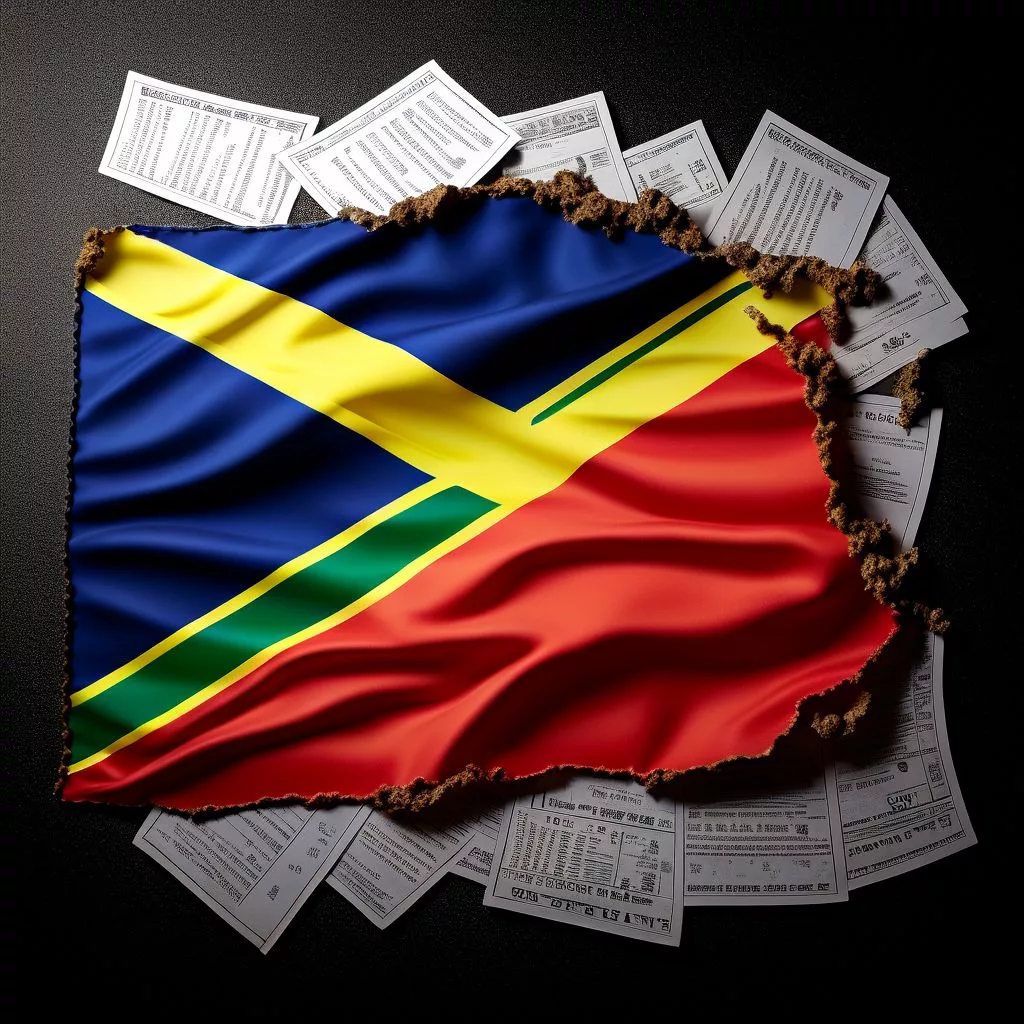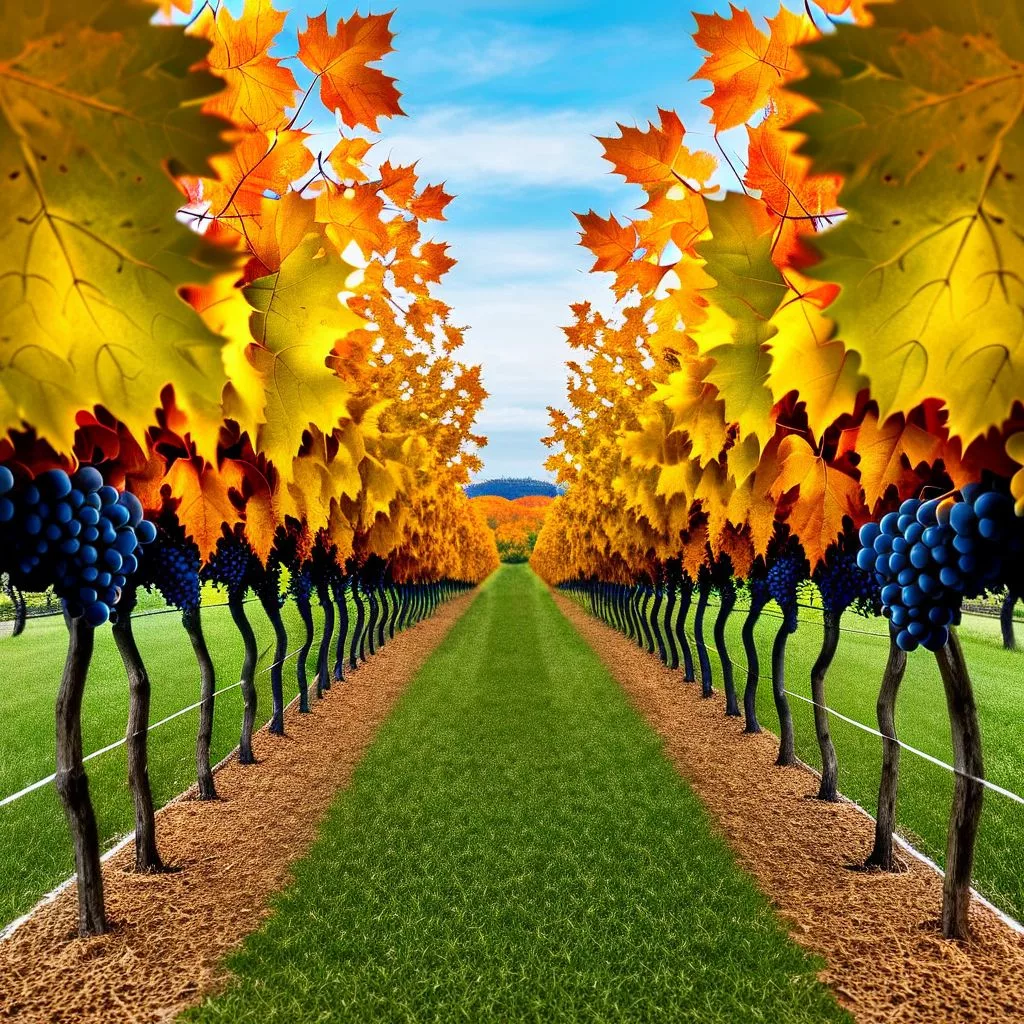AfriForum, a group advocating for Afrikaner rights in South Africa, is facing serious allegations of high treason, stirring up intense debates about minority rights. Their CEO, Kallie Kriel, strongly defends the organization, claiming the accusations are politically motivated and a distraction from government corruption. The controversy began with a controversial document sent to the U.S. government, which some see as a desperate plea for help, while others believe it fuels racial tensions. As the situation unfolds, Kriel believes a court case could shine a light on the government’s failures, making AfriForum’s voice louder in a complicated political landscape.
What are the recent allegations against AfriForum and its implications?
AfriForum faces allegations of high treason related to its advocacy for Afrikaner interests, igniting debates on minority rights and governance in South Africa. CEO Kallie Kriel dismisses these claims as politically motivated, positioning AfriForum as a crucial watchdog amid ongoing governmental scrutiny and international attention.
In the intricate landscape of South African politics, recent accusations against AfriForum have sparked intense debate. These allegations, currently under review by the National Prosecuting Authority (NPA), center around claims of high treason involving AfriForum and Solidarity’s advocacy for Afrikaner interests. Despite the controversy, AfriForum’s CEO, Kallie Kriel, remains resolute, dismissing the allegations as unfounded.
The Washington Memorandum: A Flashpoint of Controversy
The controversy roots back to the “Washington Memorandum,” presented to the Trump administration by AfriForum and Solidarity. The document called for U.S. intervention to support Afrikaner development, citing threats of a “white genocide” against South African farmers. The memorandum painted a dire picture, attracting international attention to the Afrikaners’ plight. Critics argue that this move exacerbates racial tensions, while supporters view it as a cry for justice in the face of an indifferent government.
AfriForum’s memorandum highlighted severe concerns over the safety and rights of the Afrikaner community, drawing a stark depiction of their vulnerable situation. This international appeal brought the issue into the global spotlight, prompting varied reactions from different quarters. For some, it underscored legitimate fears and the need for urgent intervention, while others saw it as a divisive tactic that could deepen South Africa’s existing racial divides.
The debate around the Washington Memorandum has significant implications for the country’s socio-political fabric. It raises questions about the balance between advocating for minority rights and maintaining social cohesion in a diverse and historically complex nation. This document, and the reactions it elicited, illustrate the deep-seated tensions that continue to influence South African politics.
Kallie Kriel’s Defiant Stance
Kallie Kriel has been vocal in his criticism of the state’s investigation, calling the charges politically motivated. He cites ongoing corruption within the African National Congress (ANC), highlighted by the Zondo Commission’s findings, and questions the inactivity of the Hawks, South Africa’s Directorate for Priority Crime Investigation, on these issues.
Kriel’s public statements reflect his unwavering confidence. “I will not be having any sleepless nights over this as these complaints are baseless. If the state however goes ahead with this, it will make us stronger,” he asserts. This confidence resonates with AfriForum’s supporters, who see the organization as a crucial defense against governmental overreach and corruption.
Kriel’s defiance is not just about rejecting the allegations but also about casting a spotlight on what he perceives as the government’s failures. His stance frames AfriForum as a necessary counterbalance to ANC’s purported abuses of power, appealing to those disillusioned with the current governance. This positioning strengthens AfriForum’s identity as a watchdog organization, holding the government accountable for its actions.
A Platform for Justice or Division?
Kriel suggests that a court case could provide a valuable platform to expose the alleged misconduct of ANC leaders. “It would give us a platform to show the world and the country how the ANC leaders are acting against the interests of the country,” he says. Such a trial could become a focal point for broader national and international discussions on governance, corruption, and minority rights.
This potential legal battle could shed light on deeper systemic issues within South African politics. By bringing these allegations to court, AfriForum aims to highlight what it sees as a pattern of abuse and neglect by the ANC, thus broadening the scope of the discourse beyond the immediate charges. This strategy could galvanize public opinion and potentially drive significant policy changes.
The implications of such a trial extend beyond the courtroom. It would engage various stakeholders, including international observers, in a critical examination of South Africa’s political dynamics. This scrutiny could lead to increased pressure on the government to address corruption and better protect minority rights, aligning with AfriForum’s broader objectives.
Government Response and Political Tensions
President Cyril Ramaphosa’s criticism of AfriForum’s Washington visit underscores the high stakes of this political conflict. Ramaphosa argues that such actions sow division within an already fractured society. However, Kriel counters this by emphasizing the government’s inaction on crucial issues affecting Afrikaners, positioning AfriForum as a voice for the marginalized.
The government’s response to AfriForum’s actions highlights the delicate balance between maintaining social harmony and addressing minority concerns. Ramaphosa’s stance reflects a broader governmental perspective that sees AfriForum’s international appeals as potentially harmful to national unity. This tension between domestic policy and international advocacy underscores the complexity of South Africa’s political landscape.
The controversy also has international dimensions. Former U.S. President Donald Trump’s decision to cut funding to South Africa over alleged human rights abuses related to land policies adds another layer of complexity. Moreover, influential figures like Elon Musk have publicly condemned the South African government, increasing global scrutiny. This international attention amplifies the domestic debate, bringing additional pressure on South African authorities to respond to these criticisms.
Historical Context and Modern Struggles
To fully grasp the current situation, one must consider South Africa’s turbulent history. The legacy of apartheid still casts a long shadow, influencing contemporary socio-political dynamics. During apartheid, the government enforced racial segregation and disenfranchised the majority of the population. Today, the country strives to redress these injustices, but significant challenges remain.
AfriForum positions itself as a defender of Afrikaner culture and rights in this post-apartheid era. It argues that affirmative action policies and land reforms disproportionately harm Afrikaners. Critics see these policies as necessary correctives to historical injustices, while AfriForum views them as new forms of discrimination. This dichotomy lies at the heart of the current allegations and the broader political discourse.
The ongoing struggle between redressing past injustices and ensuring fair treatment for all citizens underscores the complexities of South African society. AfriForum’s stance reflects a broader debate about how to balance historical redress with contemporary equity. This tension continues to shape the nation’s policies and political landscape, making it a critical area of focus for both local and international observers.
The Role of Civil Organizations
AfriForum and Solidarity are part of a long tradition of civil organizations that play crucial roles in South African society. These groups often step in where government action is lacking, advocating for various communities’ rights. They serve as watchdogs, holding authorities accountable and pushing for policy changes.
In the modern era, these organizations also navigate the digital landscape, leveraging social media to amplify their messages. Kriel’s posts on platforms like X (formerly Twitter) exemplify this strategy. By directly engaging with the public, AfriForum can rapidly disseminate its viewpoints and rally support.
The effectiveness of civil organizations in influencing public discourse and policy cannot be overstated. Their ability to mobilize support, both online and offline, makes them powerful entities in shaping societal narratives. AfriForum’s use of digital platforms to engage with a broader audience illustrates the evolving nature of civil advocacy in the 21st century.
International Attention and Local Impact
The international community’s response to South Africa’s internal issues can significantly influence the country’s political climate. Support from global figures and foreign governments can validate local movements, providing them with additional leverage. Conversely, such attention can also polarize domestic politics, as seen in the varied reactions to AfriForum’s Washington Memorandum.
The involvement of figures like Trump and Musk demonstrates the intersection of local struggles with global politics. These endorsements and criticisms can alter the dynamics of international aid, investment, and diplomatic relations, further complicating South African governance.
This international dimension adds a layer of complexity to the local political landscape. Global attention can amplify domestic issues, leading to increased scrutiny and pressure on national governments. For AfriForum, international support can enhance its legitimacy and influence, while also highlighting the interconnectedness of local and global political arenas.
A Future in Flux
As South Africa continues to grapple with its past and present challenges, organizations like AfriForum will likely remain influential. Whether viewed as champions of minority rights or as entities sowing division, their actions resonate deeply within the national consciousness. The outcome of the current investigations and potential court cases could set significant precedents, shaping the future of civil advocacy and political accountability in South Africa.
In this intricate tapestry of history, politics, and advocacy, the narrative of AfriForum and the allegations it faces serves as a microcosm of broader societal struggles. It highlights the ongoing quest for justice, the tensions between different visions of the nation’s future, and the vital role that active, engaged citizenship plays in shaping that future.
The evolving dynamics between civil organizations, government entities, and international actors will continue to shape South Africa’s political landscape. As the nation navigates these complexities, the actions and responses of entities like AfriForum will play a crucial role in defining its trajectory.
Frequently Asked Questions (FAQ)
What specific allegations are currently facing AfriForum, and what do they imply about minority rights in South Africa?
AfriForum is facing allegations of high treason related to its advocacy for Afrikaner interests. These claims have ignited significant debates about minority rights and governance in South Africa. CEO Kallie Kriel argues that these allegations are politically motivated and distract from broader governmental corruption issues.
What is the Washington Memorandum, and why is it controversial?
The Washington Memorandum was presented by AfriForum and Solidarity to the Trump administration, calling for U.S. intervention to support Afrikaner development and citing threats of “white genocide” against South African farmers. This document has drawn international attention, with critics claiming it exacerbates racial tensions while supporters view it as a legitimate call for justice.
How does Kallie Kriel defend AfriForum against the treason allegations?
Kallie Kriel has been vocal about dismissing the allegations as baseless and politically motivated. He asserts that if the government pursues these charges, it could strengthen AfriForum’s position as a watchdog against government corruption, further highlighting the failures of the African National Congress (ANC).
What potential impact could a court case have on AfriForum and South African politics?
Kriel suggests that a court case could serve as a platform to expose alleged misconduct by ANC leaders, potentially galvanizing public opinion and driving significant policy changes. Such a trial could also attract international attention, increasing scrutiny on the South African government regarding its treatment of minority rights and corruption.
How does the South African government, particularly President Cyril Ramaphosa, respond to AfriForum’s actions?
President Cyril Ramaphosa has criticized AfriForum’s Washington visit, arguing that their actions sow division in an already fractious society. Kriel counters this by emphasizing the government’s inaction on issues affecting Afrikaners, positioning AfriForum as a voice for marginalized communities.
What role do civil organizations like AfriForum play in South Africa’s political landscape?
Civil organizations such as AfriForum are crucial in advocating for community rights and holding authorities accountable. They often fill gaps where government action is lacking, and their use of digital platforms has amplified their messages, enabling them to engage with a broader audience and influence public discourse significantly.












